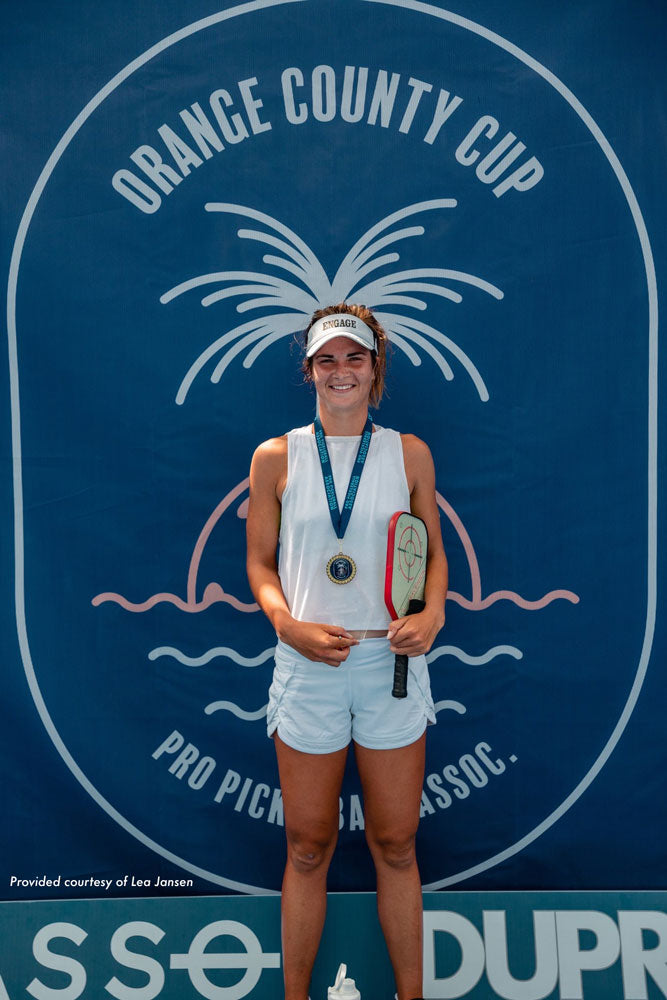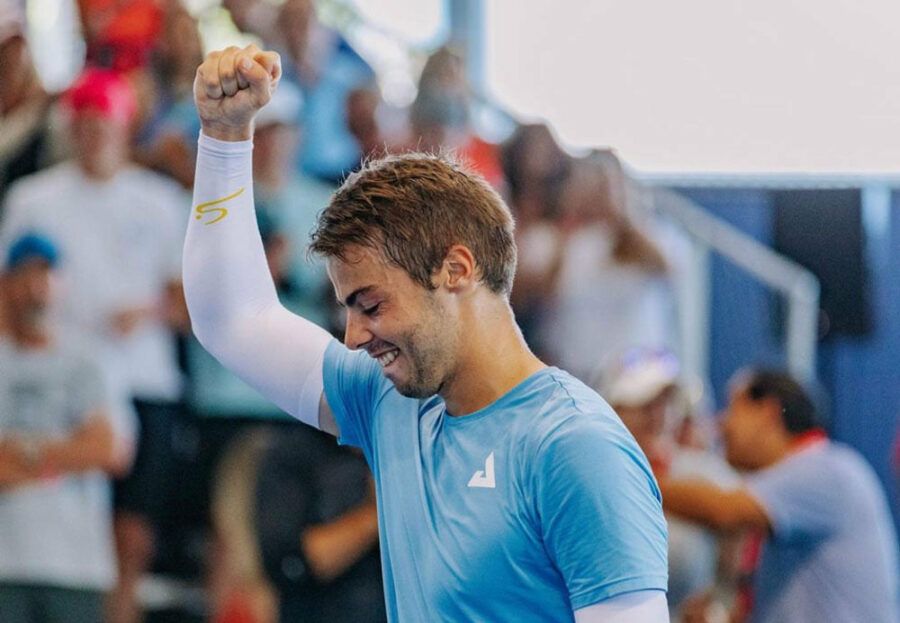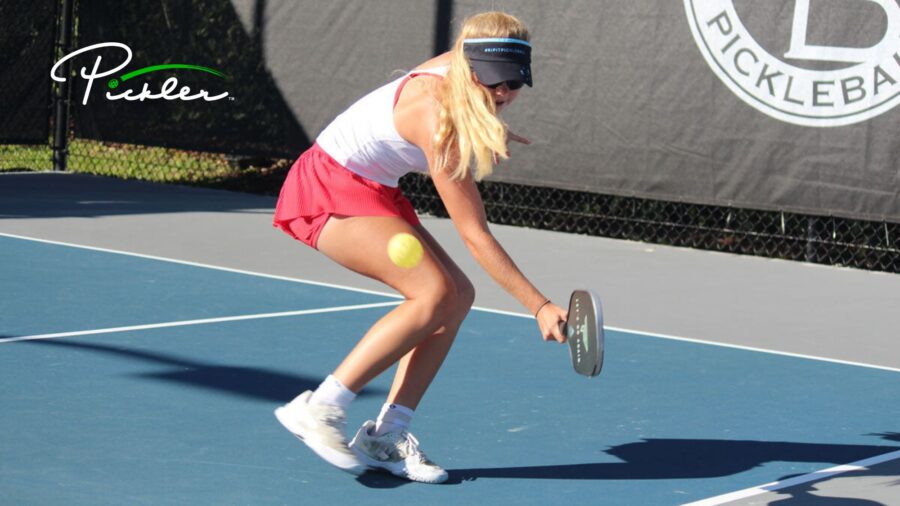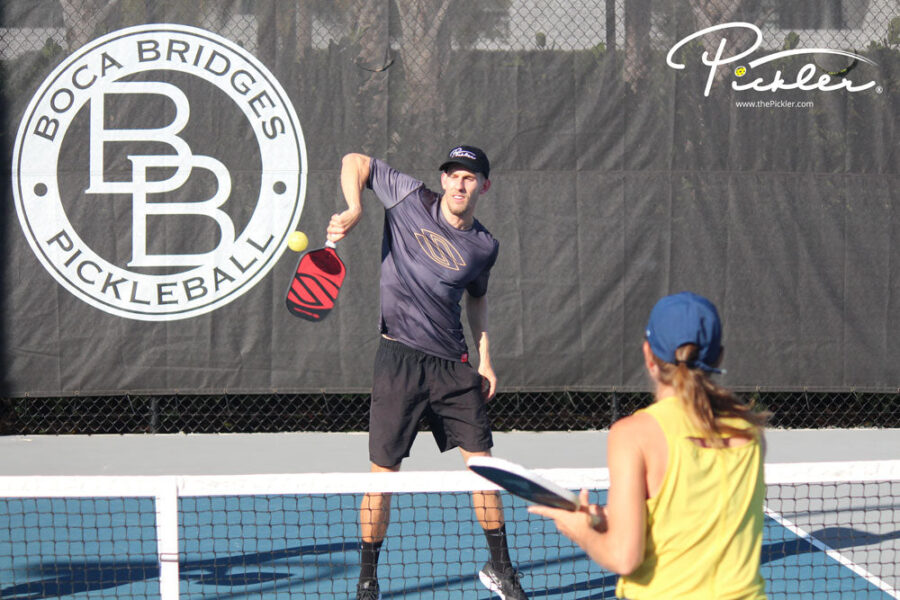Mental health has been in the headlines in the sports world lately, including the world of tennis with Naomi Osaka’s absence from two of the majors (if you haven’t heard, you can hear from Osaka herself in her article published in Time). Mental health and the mental side of pickleball has also been a recent topic of conversation, as Lea Jansen has been the first pro pickleball player to really be outspoken about it in connection with her series of consecutive women’s singles wins at the APP Cincinnati Open (in fact, she won the triple crown), PPA Orange County Cup, and USA Pickleball Newport Beach Championships.
In March 2021, Jansen was on the verge of quitting pickleball entirely. She experienced too much stress and pressure on the pickleball court, causing her to feel immense anxiety, so much so that she would freeze up and even throw-up before matches. After she decided to pull out of events, Jansen met Jim Costello, who is a leader in exercise physiology and the science of neuroplasticity identified within brain development. Costello made a deal with Jansen – get back into her upcoming events and, in exchange, Costello would help her with her anxiety so that she could perform efficiently and play without anxiety on the pickleball court. She took the deal.
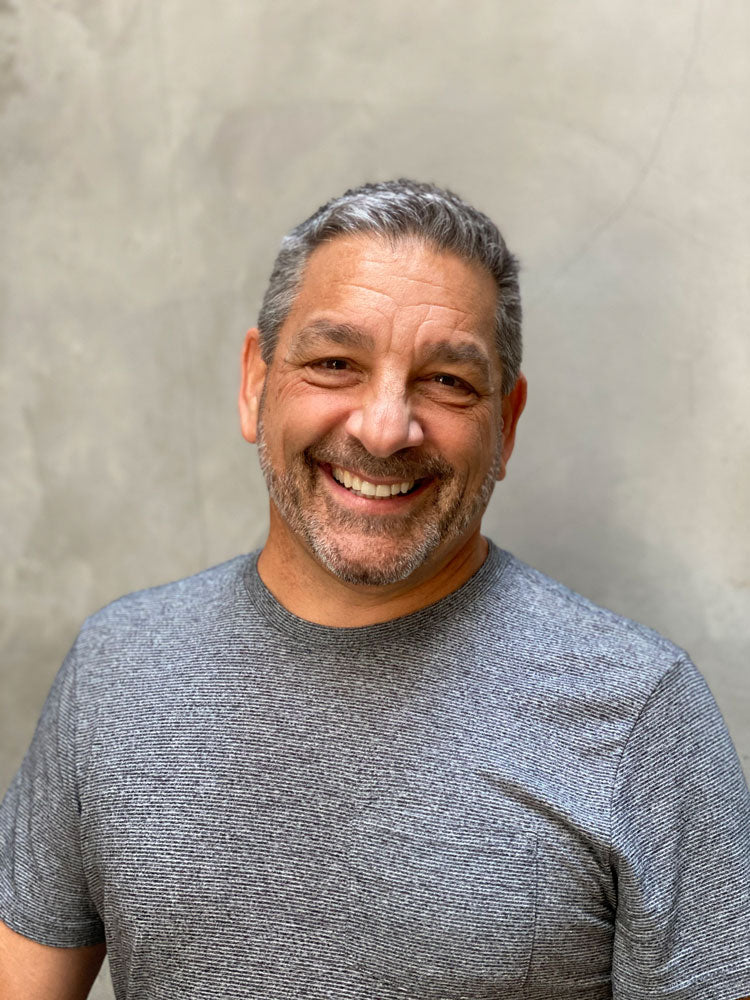
Costello typically works with individuals with autism, ADHD, anxiety, and other neurological challenges through his company, Neuro-Fit (www.neuro-fit.com). He typically does not work with athletes. With that said, athletes can have anxiety, and the same principles from the Neuro-Fit program apply to them. From Costello’s perspective, he noted that “by watching Lea move on the court, I was able to see what are referred to as soft signs. These are physical indicators that her brain and body connections were not working efficiently, affecting her ability to flow as an athlete. She was experiencing anxiety, also an indicator that her nerve system was overloaded and overwhelmed.”
So, starting in April 2021, Costello and Jansen worked together to build a foundation to rewire Jansen’s neuropathways, so Jansen’s brain and body work together—the details are obviously more in-depth, but think of this as finding your center at yoga, or resetting your center, so that your brain and body work together. Costello describes this work as his specific movement model.
As a result of this specific movement model or “centering,” Costello and Jansen have eliminated the aforementioned soft signs and strengthened the connectivity to areas within her brain that coordinate movement and regulate sensory and emotional wellbeing. This greatly reduced Jansen’s anxiety and continues to enhance her physical performance.
From Jansen’s perspective, she describes that she “just plays” – there is no past and no future. There is no anxiety, but rather just playing happy in the moment, which she reminds herself of every 2 to 3 points with paddle taps at certain spots on her body. She notes that when she is playing in this mental space, she is “not thinking of anything,” which is certainly a different mindset than she had just a few short months prior.
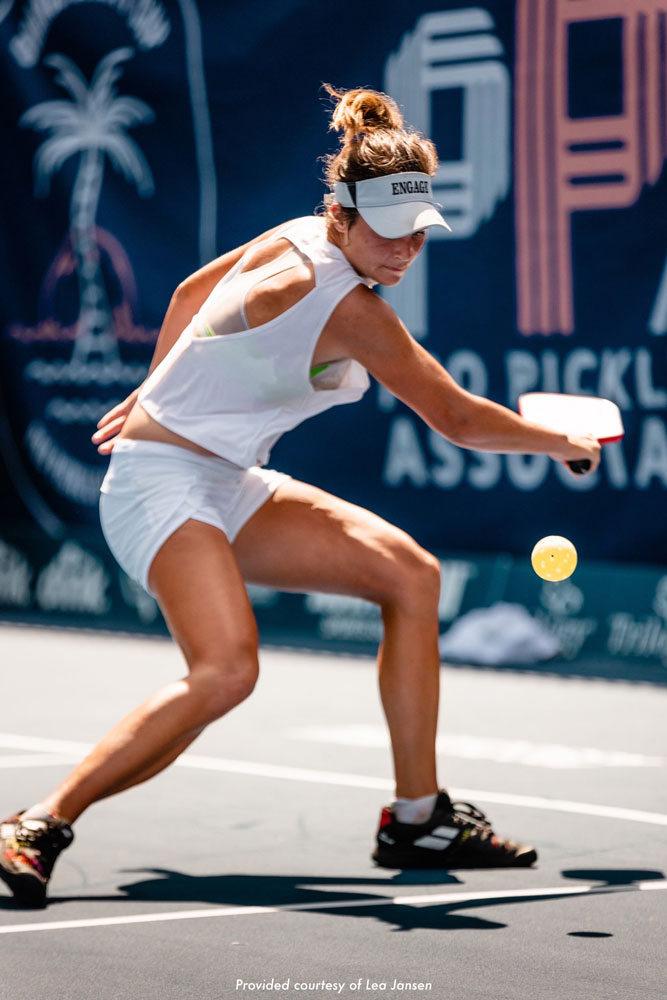
Jansen gives 100% of the credit to Costello, and his ability to help her mentally, with her success on the pro pickleball tour as of late. Whether the power of the mental game, or rewiring neuropathways, is perceived by Jansen or actual reality, Jansen’s results at pickleball tournaments pretty much speak for themselves, as she has medaled in every tournament since starting mental work with Costello (something she was not doing before then). Jansen notes that it is hard to play, or do anything, with a bad frame of mind, and if not for Costello and Neuro-Fit, she would have quit pickleball entirely. Crazy to see how mental training transformed Jansen’s outlook toward the sport and performance on the pickleball court…
Bottom line – Mental health and the mental game is a huge component of any sport, including the sport of pickleball. Don’t neglect it.
